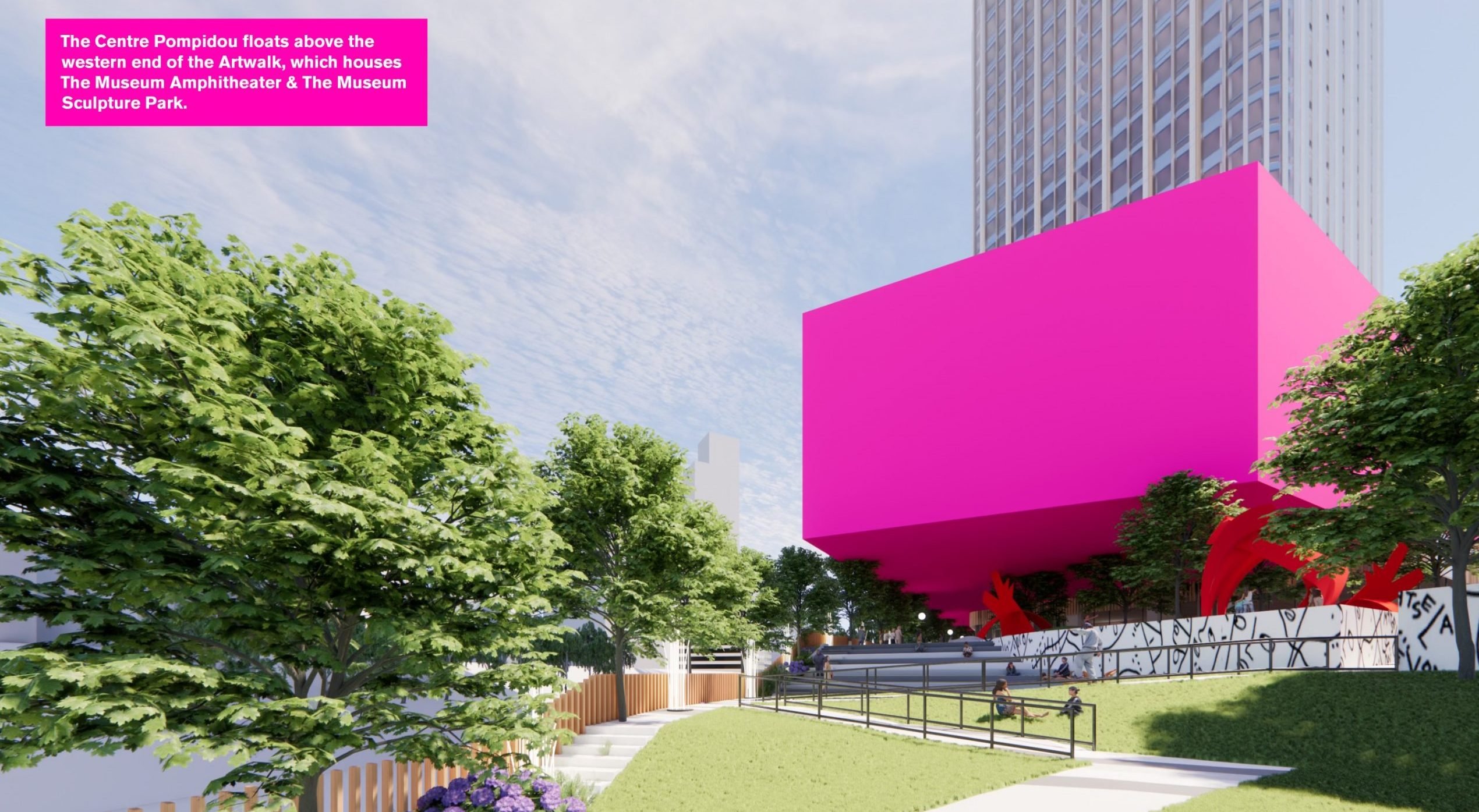
The “will they, won’t they” saga between the Centre Pompidou and Jersey City is not over. The transatlantic agreement appears to be back on after New Jersey politicians pulled funding from the project over the summer, claiming that it would require too much taxpayer money.
The Pompidou’s new plan would see the Paris museum open its stateside satellite in a new location, a 100,000-square-foot space inside two 50-story towers on Pavonia Avenue that have been granted a 30-year tax abatement. Jersey City Council’s mayor Steve Fulop said he is willing to keep pursuing what he sees as a “once-in-a-generation opportunity.”
According to the Jersey Journal, critics of the newly proposed abatement deal remain skeptical about this plan. At a rowdy six-hour meeting resulting in a 6-3 vote in favor of the museum last Wednesday, September 25, Jersey City council members entered into a heated debate and were frequently heckled or cut off by the audience.
“I feel this legacy project, although exciting, may be one of those items where we won’t be able to control our spending or understand how it is going to be spent in the future,” said Paula Mahayosand, a local who spoke out on the evening.
The collaboration between the Pompidou and Jersey City was first announced in 2021, with the opening expected to take place early this year. If it goes ahead, it will be the Parisian contemporary art museum’s first North American outpost, joining an international network that includes sites in Málaga, Brussels, and Shanghai. Plans are also being hatched for a new museum in Seoul, expected in 2025.
The plan then was for the museum to occupy an old industrial building in the city’s Journal Square neighborhood, but the cost of the project resulted in a slew of delays and sparring between local politicians and government officials.
A rendering of the original Centre Pompidou × Jersey City. Courtesy of OMA.
An initial $58 million was allocated to the project, courtesy of $34 million from the New Jersey Economic Development Authority (NJEDA) and $24 million from the Department of State. However, the Jersey City Redevelopment Agency (JCRA) was only able to promise $4 million annually towards recurring operating costs, which have been estimated at more than $23 million.
The resulting $19 million annual shortfall became cause for serious concern and New Jersey lawmakers made the drastic move of cutting all promised funding for the project in late June, leaving it “paused indefinitely.”
In a letter to the Centre Pompidou, the NJEDA’s chief executive Tim Sullivan said the legislators’ decision had been made in part due to concerns about the compounding impact that the pandemic and subsequent global conflicts have had on “the supply chain, rising costs, an irreconcilable operating gap, and the corresponding financial burdens it will create for New Jersey’s taxpayers.”
This time around, mayor Fulop has devised a 10-year plan to cover annual operating costs now estimated at $27.5 million. This will apparently come from $4.3 million in visitor revenue, $6.5 million in philanthropic donations, $7.3 million in government grants, a city landlord contribution of $2.9 million, a $2.6 million library contribution, and $3.5 million in state tax credits.
“I firmly believe this museum will bring significant long-term benefits not only to the local arts community, but also to our broader cultural and business landscape,” Anne Novado, founder of the city’s Novado Gallery, said at the city council meeting. “It will further enhance the reputation of our city.”
She was backed by Robinson Holloway, executive director of New Jersey’s regional Art Fair 14C, who claimed the Pompidou project had brought about a new partnership with an unnamed European arts organization. “They are going to partner with my organization and planning to move from their New York City offices to Jersey City because of the Pompidou and the strength of the community here,” she said.